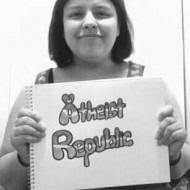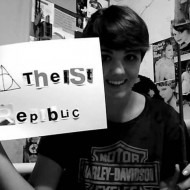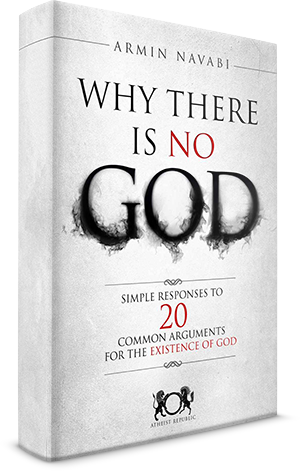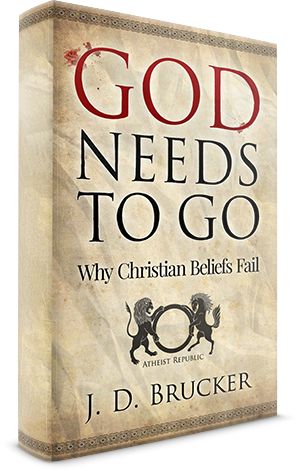Hello there,
William Lane Craig gives a philosophical argument for the beginning of the universe using Hilbert's Paradox of the Grand Hotel.
You can watch his argument on Youtube:
https://www.youtube.com/watch?v=RjCrUEwzCxc
If you don't know Hilbert's Hotel you can read it on Wikipedia:
https://en.wikipedia.org/wiki/Hilbert%27s_paradox_of_the_Grand_Hotel
Whatsoever, I was thinking about this Hilbert's Hotel Paradox and I did not found the Paradox.
Is Hilbert’s Hotel thought experiment a Paradox or an unsolved Topic?
William Lane Craig claims the following:
You can make room for every new arriving guest, even if all rooms where occupied before.
Wikipedia article of Hilberts Hotel captor Analysis:
Hilbert's paradox is a veridical paradox: it leads to a counter-intuitive result that is provably true.
My argument, why I think it is not provable true:
First I want to explain another example, than we go back to Hilbert's Hotel:
Guest 1 moves out and knocks on Guest 2’s door. Guest 2 goes out. Guest 1 moves in the Room 2 and Guest 2 knocks on Guest 3’s door. Repeat this process every second. If you repeat this forever, there is always one guest n outside knocking on n+1's door. Here we have potential infinity, but never reach infinity. But after an infinite amount of time, every single guest moved. Finally, every guest n has moved in n + 1 Room. No more guest is outside anymore, because all moved. Something happens, which used to be impossible before.
Back to Hilbert's Hotel:
The mathematical or logical argument for Hilbert's Hotel Paradox is: Every guest can move to n + 1 room. So you can make room for any new guest (Peano axioms).
I would say, there is no logical or mathematical proof, that every single guest will move into the next room in this thought experiment. It's not clear what will happen in this infinity scenario. If you go with my argument, Hilbert’s Hotel is an unsolved topic and not a paradox. Saying every guest moves into the next room in Hilbert's Hotel is like saying every guest moves into the next room in my example above. I am not so sure, if every guest moves into the next room, because I don't know how this infinite sets interact with each other. If we don't know how this two infinite sets, Guests and Rooms, interacts with each other, than it is an unsolved topic.
William Lane Craig also is prepared in the Youtube video for such argument and says:
Sometimes people react to Hilbert's Hotel by saying: Because we can't understand the infinite. It's just beyond us. But this reaction is in fact mistaken and naive. Infinite set theory is highly developed and well understood branch of modern mathematics.
But here, Craigs argument is weak for me. Because infinite set theory is highly developed, it can not be beyond us? I think it can beyond us, of course. Something highly developed doesn't mean we understand it at all.
Subscription Note:
Choosing to subscribe to this topic will automatically register you for email notifications for comments and updates on this thread.
Email notifications will be sent out daily by default unless specified otherwise on your account which you can edit by going to your userpage here and clicking on the subscriptions tab.




























Hi! There are some posters here who are very mathematically literate.
I didn’t “click” but I’m going from memory of this particular infinity example.
There are others as well - just plain whole numbers to infinity and the “infinity” between the numbers, etc.
So it’s a concept. As you stated a very useful mathematical concept used in the concept of maths. Which of course translates into “real world” usage (for me, this is key).
I don’t know if Dr. William Lane Craig is all that in touch with “reality”, although he might be a smart guy.
In mathematics, a paradox is a mathematical result that seems to violate your common sense. So yes, it is a paradox (at least for most people).
As far as Dr. Craig video: it is so full of inaccurate statements that if you want to learn about this topic, you should start by forgetting anything he said on the matter.
-------------------------------------------------------
If your complaint involves guests refusing to move, well typically the story is presented in a way where we just force them to move (because we don't want to deal with that).
When I was first introduced to the topic, I was concerned about the amount of time it would take to move all the guests. This is also dealt with in a similar manner (in that we assume we can move them instantly or "very quickly").
One of the purposes of the story and having the guests move, is that moving them is similar to the mapping of one set to another (which can be done for the entire set in one action, and of course the elements of the set can not refuse to be mapped).
--------------------------------------------
I have a puzzle for anyone who is interested:
In the above story, lets say it takes:
How long does it take to move all of the guests?
Nyar...
LOL...what is “time” - measurement of change... in my imaginary scenario - same amount of infinite time just relative to the change...;once the first guest realized I had a gun forcing his move, jeez - the others learned twice as fast...
Actually, seriously...I just started dinner, so I’ll take a real peek at this later :)
Edited to add: goddamnit! I’m cutting my broccoli, stopped now to think because “time” is linked to space...as far as I “know” right now cutting broccoli, limited by the speed of light. Then there’s quantum (maths)...so can mathematically “time” be measured infinitely with those fucking 10s (powers) or am I muddling myself up? God my beeper is going off like mad!!!!
That is very similar to my first complaint when presented with this story. My professor demolished this complaint with something similar the following: who told you that Special Relativity was a postulate in this story? Or to rephrase his statement: this is math, not science. Or another way of saying it: this story isn't about the real world (not a real hotel for example), so you shouldn't assume that real world constraints apply.
Nyar - OK if that’s how he set the perimeters - fine, but then why “stop” and NOT use “negative time?” Why is the “second” real?????
@Whitefire13
If negative time means using negative numbers to represent points in time, that isn't a problem.
If negative time means that time progresses from 1 -> 0 -> -1 -> -2 ...; that isn't a problem either.
Traditionally it is done the other way, but that isn't a requirement.
-------------------------------------------
If you don't like the second, use any unit of time you like. In fact: you can just change everything from "seconds" to "units of time" to make it more generic.
------------------------------
------------------------------
Basically there is nothing sacred about doing it the traditional way; the other ways are just as logical.
Thank you for your response. I understand your point.
I did not complaint guests refusing to move. I am fine with the story forcing them to move.
For me, the argument, every single guest n can move into room n + 1 can be questions by 2 infinite sets, guests and rooms. It's like in my own example, letting the guest move second after second. Every guest can move into the next room. But there is always one guest staying out.
My answer to your question about the puzzle:
I don't know, maybe after 2 seconds all moved. But here I go with the same argument. I don't know what happens after 2 seconds, if all guest had really moved.
Yes, the answer is 2 seconds. Which might also seem like a paradox to some people. That an infinite number of events (moving an infinite number of guests), each one starting after the previous one finished, can be completed in a finite amount of time (2 seconds in this case).
Remember this the next time a philosopher (or apologist) tells you that an infinite amount of past events requires an infinite amount of past time. As much as that might match up with your common sense, it is clearly false.
-------------------------
It means the reasonable sounding idea: ∞ - ∞ = 0; is not always true.
Jesus fuckin’Christ- my ass just got handed to me by a theist ;)
Lol
Reread it twice - got it now! Also I’m eating and my brain has some energy!
Doh!!!! (Homer Simpson)
And to add...we haven’t accepted “real world time travel” (time moving in a negative fashion) so it’s limited to 0 (stop motion). Unless. Hey does quantum include negative “time”?
Craig's point is that the universe had a beginning which the hotel thought experiment doesn't prove, but might poke fun at. I'm guessing Craig's implication is that somehow god must be responsible for the beginning. Whitefire is on the right track with real world usage. If you have $1 bill, it is only worth a dollar because a lot of other people also have the idea that it is worth a $1. If everybody who knew this suddenly vanished, it would just be a piece of paper with writing on it. Money, countries, titles of ownership, and religions are all examples of shared illusions. These only exist in the minds of humans. There are an estimated 4000 religions on the planet today, none of which can show us how to measure their unfalsifiable claims in reality.
mafsiii - is that why no one wants my shells, salt and toilet paper as trade anymore?????
Damn, I thought money was “real” LOL
All this mental gymnastics for what?
https://www.youtube.com/watch?v=34Em8BkZYnI
Personally I try to keep things simple because all that stuff , interesting as it is and fun to play around with , takes away from the simplest of questions regarding mathematics. If mathematics is reality and what math tells us is that there are Laws of Nature then where did these laws come from ?
With a good set of postulates, mathematics is good at modelling reality. Equating them is a bridge too far.
Anything other than mathematics that describe physical reality ? Didn’t answer the question of where the Laws of Nature come from ?
Are you talking about forces that are described,
like gravity?
Well some multi-celled animals seem to be able to predict the future and navigate their way though our world, without any immediately obvious mathematics. So maybe.
And by predict the future, I just mean for example: when you throw a treat to your dog, the dog seems to understand that the line the treat is currently following, is not good enough to catch the treat. That he must choose a location lower than that line to place his mouth to even have a chance of catching it. In physics we'd say he needs to do this because of gravity: f = m * M * G * r^(-2). Somehow I don't think that is the way the dog does it, and I'm pretty sure that isn't the way I do it when I try to catch a baseball. History has shown that math (plus the postulates from science) is an excellent way to predict the future, but I pretty sure there are other ways.
So mathematics is the only thing we have that describes physical reality . There isn’t anything else . What about the Laws of Nature which is what mathematics tell us are their source , where do they come from ?
Again, math with science is excellent at predicting the future. Whether or not that qualifies as a description of physical reality or worse: as the only physical description of reality, who knows. I'm not really sure what that means, and I'd guess no one other than you knows. What I'm saying is that it seems that dogs, fish, etc: don't seem to have a problem predicting the future in situations where predicting the future with mathematical physics would involving some pretty nasty math. I'm speculating that fish don't do it that way.
I don't understand that statement. I don't know what noun, the pronoun their is referring to. Could you tell me?
Ok . Mathematics is the language that the Laws of Nature provides for us to understand Reality . And , where do the Laws of Nature come from ?
I am not of that opinion; I think I've made that pretty clear.
Yes ,you’ve said that mathematics is a modeling tool to predict the future, but, it also reveals the past . So if mathematics can reveal the past and predict the future which part of Reality is mathematics not able to model ? . What other method/ language is there for understanding Reality ?
And , where did the Laws of Nature come from ?
As I've stressed already; it takes more than mathematics to model reality. These questions from you about mathematics, don't make a lot of sense in that context.
So what other methods / languages do we use besides mathematics to model reality ?
You can't model reality with mathematics alone. It always requires some outside postulates, something that can not be derived by logic.
Nyarlathotep
So you said this previously -“With a good set of postulates, mathematics is good at modelling reality” . So which non mathematical postulates are you talking about ? Seems to me that we can certainly fit the postulate of a First Cause - Creator -God into the modeling reality you are positing
f = ma is a pretty common one (Newton's 2nd law); that can not be deduced with logic.
I’m flying close to the sun as I’m no mathematician but - Getting back to my original point - Is Newtons 2nd law a model of Reality that is not expressed by mathematics? Is Logic when used in this example itself a mathematical model of Reality ?
Where did the Physical Laws of Nature come from ?
f = ma does not come from mathematics. It comes from a guess (made by Newton).
Pages